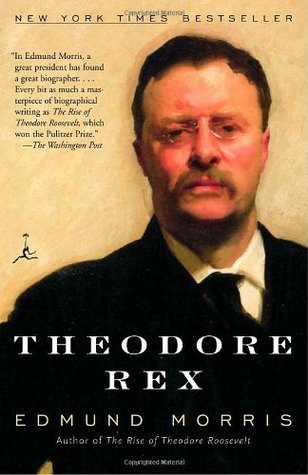What do you think?
Rate this book


772 pages, Paperback
First published November 20, 2001
Indistinguishable as the whistle-stops soon became, even to him, each was supreme drama to a little audience that had been looking forward to it for weeks. Some buggy travelers had come one hundred miles to perch on the platform and peer endlessly at the horizon, waiting for a smudge of smoke to signal that “Teddy” was imminent. Then a speck growing in the smoke, a crescendo of wind and wheels, a great locomotive advancing – too fast, surely, to stop? Despair as it indeed keeps moving. Relief when it halts, after all, under the water tank one hundred yards down the track. A general stampede toward the Elysian, where Roosevelt stands grinning in frock coat and vest. He leans over the rail, pumping hands and tousling cowlicks. “Dee-lighted!” Rearing back, he begins to orate, punctuating every sentence with palm-smacks and dental percussion, while his listeners stand mesmerized. The engine bell rings; the train jerks forward. Another grin, and a farewell wave. The Cheshire-cat flash of those teeth float in the sky long after the train is a speck again.